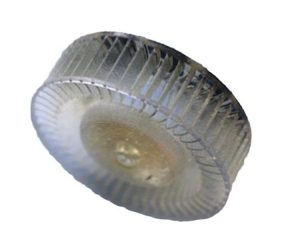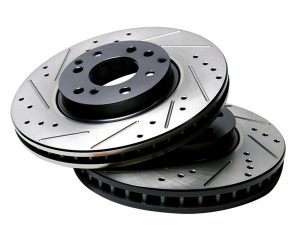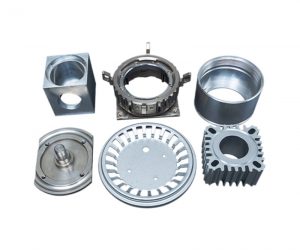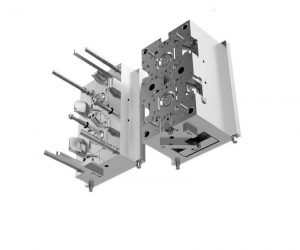Picking the right molding company for your project is crucial. It affects the quality, cost, and efficiency of your manufacturing process. Here’s a simple guide to help you find the best molding companies:
First, figure out what you need. Clearly outline your project requirements, including the type of molding process (like plastic injection molding), material specifications, production volume, quality standards, and budget constraints. Having a well-defined project scope will make it easier to communicate your needs to potential molding companies.
Next, look for experience and expertise. Choose a molding company with a proven track record of success and extensive experience in your industry or similar projects. Check their portfolio and ask about their previous projects to assess their capabilities.
Quality assurance is key. Make sure the molding companies you consider have strong quality management systems in place. Look for certifications like ISO 9001 or industry-specific quality certifications, which show their commitment to maintaining consistent quality standards.
Evaluate their technology and equipment. Ensure they use modern, well-maintained, and state-of-the-art technology. Advanced equipment often leads to better part quality, shorter lead times, and cost-effectiveness.
Choose a molding company that offers design and engineering support. They should be able to help optimize your part design for the molding process and assist in design modifications to enhance manufacturability and cost-effectiveness.
Look for prototyping and testing services. This step helps identify and address any design flaws early in the process before full-scale production.
Ensure the molding companies offer a wide range of material options suitable for your project. A diverse material selection ensures you can find the most appropriate material for your specific application needs.
Consider their production capacity and lead times. Choose a molding company that can handle your production volume requirements and meet your desired lead times. A reliable company should have the capacity to accommodate both small and large production runs efficiently.
Check online reviews and testimonials from previous customers to gauge their satisfaction level with the molding company's services. Ask the companies for references and reach out to their clients to inquire about their experience working with the company.
Cost is important, but it shouldn’t be the only factor. Focus on the overall value and quality of the services offered by the molding companies. Choose a company that offers competitive and transparent pricing, taking into account the full scope of their services.
Effective communication is vital. Choose a molding company that is responsive, transparent, and offers excellent customer support. Clear communication fosters trust and ensures a smooth collaboration.
Consider the location of the molding companies, especially if you require frequent on-site visits or need to ship products over long distances. A company closer to your manufacturing facility can offer logistical advantages.
By carefully evaluating these factors and conducting thorough research, you can find the best molding companies that align with your manufacturing needs and deliver high-quality products that meet or exceed your expectations. Take the time to compare multiple molding companies, request quotes, and visit their facilities before making a decision to ensure a successful and long-lasting partnership.
Introduction:
Mold making companies are super important in the manufacturing world. They create custom plastic products for lots of different industries. Picking the right one for your project can be tricky because there are so many choices out there. In this guide, we'll break down the types of mold making companies, what to think about when choosing one, how to check them out, and tips for working with them.
First off, let's talk about the different kinds of mold making companies. There are injection mold makers, die-casting mold makers, and blow mold makers, among others. Injection mold companies make things like plastic parts and containers. Die-casting mold companies focus on metal parts, like car parts and machinery. Blow mold companies make hollow plastic items, like bottles and containers.
When you're picking a mold making company, here are some key things to think about:
- Experience and Expertise: A company with lots of experience usually offers better quality because they know their stuff.
- Equipment and Tech: Modern equipment and skills mean they can meet your quality and timing needs.
- Reputation: Check out customer reviews and industry ratings to see if they're trustworthy.
Here’s how to evaluate a mold making company:
- Case Studies and References: Ask for examples of past projects similar to yours. This helps you see if they can do the job well.
- Meet or Talk: Have a chat with their sales team to understand their process, delivery times, and after-sales support.
- Compare Quotes: Get proposals from several companies to compare costs and flexibility.
When working with a mold making company, follow these best practices for a smooth project:
- Clear Communication: Make sure everyone knows the project goals, requirements, and timelines before starting. This avoids mix-ups and delays.
- Stay in Touch: Keep regular contact to solve problems and adjust plans as needed.
- Review and Feedback: After the project, review what went well and what didn’t. This helps you learn and prepare for future projects.
In short, choosing the best mold making company is crucial but can be complicated. By understanding the different types, considering key factors, evaluating their capabilities, and building a good relationship, you can ensure your project goes smoothly and you get high-quality custom plastic products.
What are Molding Companies?
Molding companies specialize in creating customized plastic products through the molding process. The molding process involves heating and melting plastic resin and injecting it into a mold, where it cools and hardens into the desired shape. Molding companies may use different types of molding techniques, depending on the product specifications.
Types of Molding Companies:
There are several types of molding companies, each specializing in different molding techniques. Injection molding companies use high pressure to inject molten plastic into a mold, producing complex and precise shapes. Blow molding companies use air pressure to inflate a plastic tube, creating hollow objects like bottles and containers. Rotational molding companies use heat and rotation to create large, hollow objects like tanks and playground equipment. Compression molding companies use heat and pressure to compress plastic into a mold, creating solid products like automotive parts and electronic components.
Factors to Consider When Choosing a Molding Company:
Several factors should be considered when choosing a molding company for your project. Quality and expertise should be a top priority, as you want a company with a proven track record of producing high-quality products. Manufacturing capabilities, industry experience, customer service and support, location and logistics, and price and lead time are also critical considerations.

How to Evaluate Molding Companies:
Evaluating molding companies involves requesting samples and prototypes, conducting factory visits and audits, checking references and reviews, comparing multiple quotes and proposals, and negotiating contracts and agreements. By thoroughly evaluating potential companies, you can ensure that you choose a partner that can meet your needs and deliver high-quality products.
Best Practices for Working with Molding Companies:
Once you've chosen a molding company, it's essential to establish clear specifications and expectations, maintain regular communication and feedback, resolve issues and disputes, and build long-term relationships and partnerships. By following these best practices, you can ensure that your partnership with your company is productive, efficient, and mutually beneficial.
Conclusion:
Choosing the right molding company is crucial to the success of any manufacturing project. By considering the types of molding companies, key factors to consider when choosing a molding company, how to evaluate molding companies, and best practices for working with them, you can make an informed decision that leads to high-quality products and long-term




